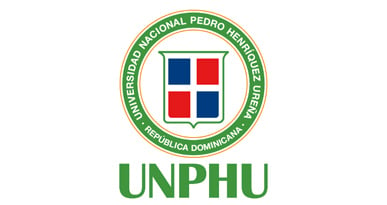Mostrar el registro sencillo del ítem
Medical students’ perceptions about the added educational value of student-run HIV/AIDS educational campaigns in the Dominican Republic
| dc.contributor.author | Chapman, Helena J. | |
| dc.contributor.author | Bottentuit-Rocha, Jessica | |
| dc.date.accessioned | 2023-11-19T23:07:12Z | |
| dc.date.available | 2023-11-19T23:07:12Z | |
| dc.date.issued | 2016-12 | |
| dc.identifier.citation | Chapman HJ, Bottentuit-Rocha J. Medical students' perceptions about the added educational value of student-run HIV/AIDS educational campaigns in the Dominican Republic. Glob Health Res Policy. 2016 Aug 17;1:12. doi: 10.1186/s41256-016-0011-x.10.1186/s41256-016-0011-x | en_US |
| dc.identifier.issn | 23970642 | |
| dc.identifier.uri | https://repositorio.unphu.edu.do/handle/123456789/5359 | |
| dc.description.abstract | This purpose of this report was to examine the perceptions of medical students about the strengths, limitations, and recommendations for improvement of the first known student-run HIV/AIDS educational campaigns in the Dominican Republic (DR), as they relate to the added value applied to their educational training. Methods: A retrospective review was conducted on evaluation reports completed by five medical students who coordinated the implementation of three annual HIV/AIDS educational campaigns in five DR communities, between 2012 and 2014. Thematic analysis was used to identify emerging themes related to perceived strengths, limitations, and recommendations for improvement and develop an acronym related to program strengths as value added to medical education. Results: Students highlighted that program strengths were the use of social media technology to facilitate communication and culture-based creativity to capture the attention of target audiences; and limitations were inadequate financial support and HIV-related cultural stigma, due to lack of disease knowledge and awareness or perceived contrasts between the federal system and faith-based community. Recommendations for program improvement, such as comprehensive event preparation and knowing the target audience, were described as key to maximizing the delivery of health messages. Conclusions: Our results highlighted that medical students gained expertise in the effective use of social media technology, culture-based creativity, and team synergy to disseminate HIV/AIDS health information across five DR communities. Students participated in these extracurricular community health campaigns, strengthening skills in communication, health advocacy, and leadership for their medical training. They served as human resources for health and can pave the way as future clinicians and indispensable health educators in local and national health collaborations. | en_US |
| dc.language.iso | en | en_US |
| dc.publisher | Global Health Research and Policy | en_US |
| dc.relation.ispartofseries | Volume 1, Issue 1;Article number 12 | |
| dc.rights | Attribution-NonCommercial-NoDerivatives 4.0 Internacional | * |
| dc.rights | Attribution-NonCommercial-NoDerivatives 4.0 Internacional | * |
| dc.rights.uri | http://creativecommons.org/licenses/by-nc-nd/4.0/ | * |
| dc.subject | Sindrome de monodeficiencia adquirida | en_US |
| dc.subject | República Dominicana | en_US |
| dc.subject | Educación para la salud | en_US |
| dc.subject | Educación médica | en_US |
| dc.title | Medical students’ perceptions about the added educational value of student-run HIV/AIDS educational campaigns in the Dominican Republic | en_US |
| dc.type | Article | en_US |
Ficheros en el ítem
| Ficheros | Tamaño | Formato | Ver |
|---|---|---|---|
|
No hay ficheros asociados a este ítem. |
|||


